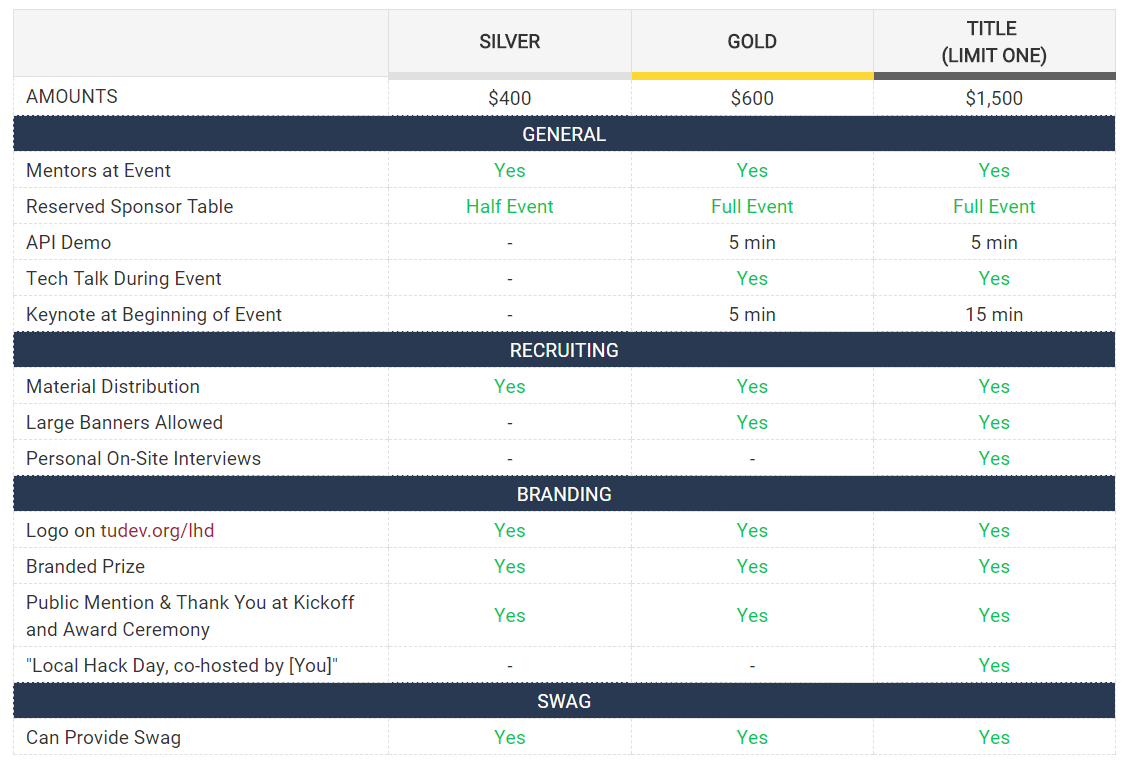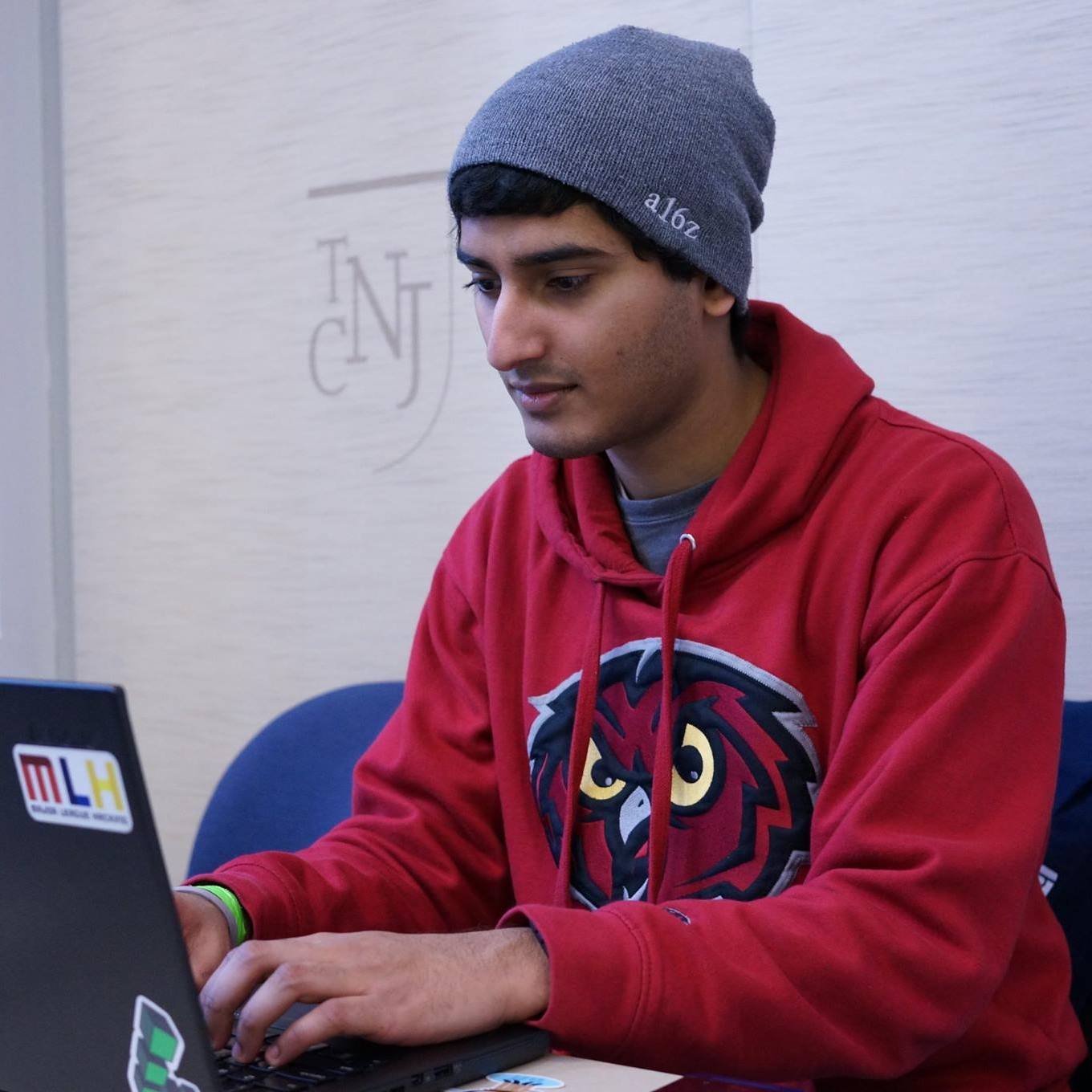How To: Organizing A Local Hack Day > Sponsorship
Sponsorship is essential to this event, because without sponsors you don’t have any source of funding, objectives for prizes, judges, or a source of tech talks. Sponsorship should be sought out early, about 3-4 months before the start of the event.
Sponsorship Document
I started by creating a sponsorship document outlining different tiers of sponsorship (title, gold, and silver), the cost of each one, and what benefits that specific tier entails for the sponsor.
A good sponsorship document should outline the following:
- What the event is.
- The intended audience for the hackathon.
- Why you require sponsorship.
- What the sponsorship is used for.
- A table of tiers, and different perks each offers compared to the others.

Sponsor relations should be built over time, and it also takes a while to find enough sponsors for your event and reaching out to them all. It also takes a while to get decisions made with sponsors for prize objectives, prizes, devtalks, representatives, etc. Career advisors at your department, the Computer Science department, business school advisors, career center advisors, etc. are all good resources for looking for potential sponsors. It is a good idea to make a list of sponsors and columns for whether or not they have been contacted, and the main point of contact (both at their company and also which organizer on your end is in charge of their account). It is important to reach out to them early, since different companies have different fiscal schedules and the earlier you ask the better the chances that they can set aside money before their funding runs out for sponsoring events such as LHD. Once you have a company who has agreed to sponsor you, you need to start figuring out payment details.
Invoice
It is a good idea to create a personalized invoice for your student organization or Local Hack Day. This invoice should have details such as the following:
- Name of Organization
- Address
- Contact info (email/website/phone number)
- payment info (PayPal link, “Check made out to…”, etc.)
- Non-profit information (if applicable)
- Name of Sponsorship Company
- Name of Representative at Sponsoring Compnay
- Contact info at Sponsoring Company
- Table of Expenses (include item, description, cost, total cost)
- Thank you note to Sponsor
Make sure to keep in contact with the sponsors throughout the planning process. The sponsors need to communicate with you to help plan out devtalk topics, prizes, objectives for prize categories, representatives attending, food concerns for sponsors, parking/transportation for sponsors, etc. In the past I have just done this over email and phone calls, but recently I have created a new Slack workspace for just a couple people on my team and all the sponsors who have helped out with our student organization. IMing and Slack are a lot quicker than sending emails or trying to schedule a phone call or physical meeting.
